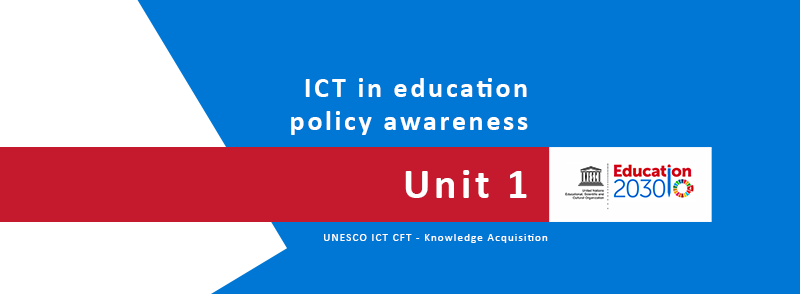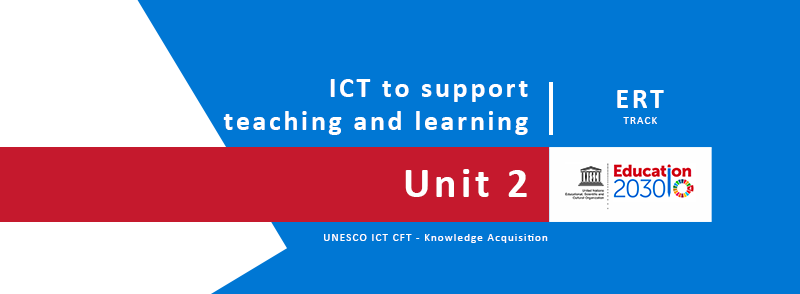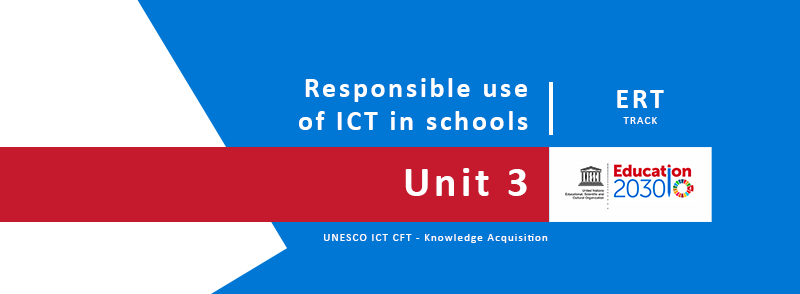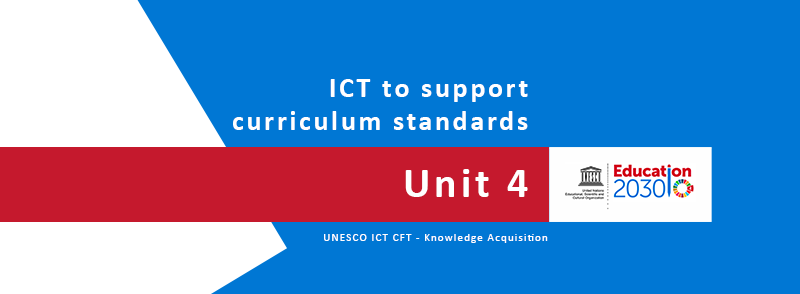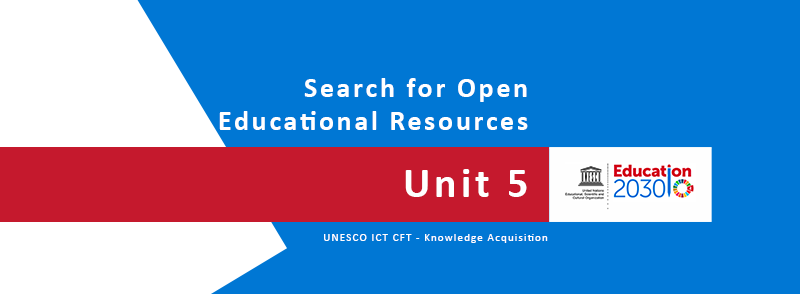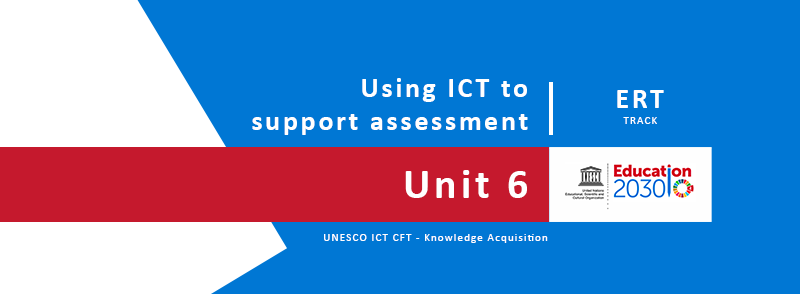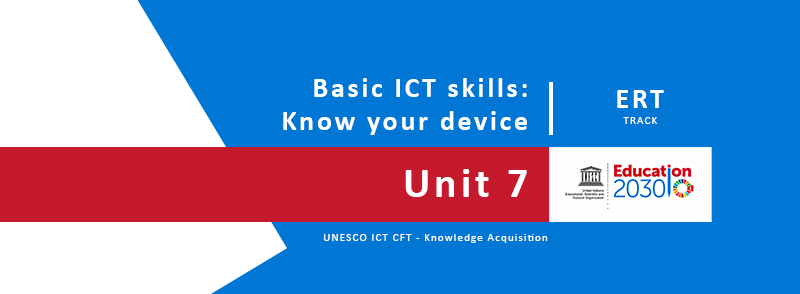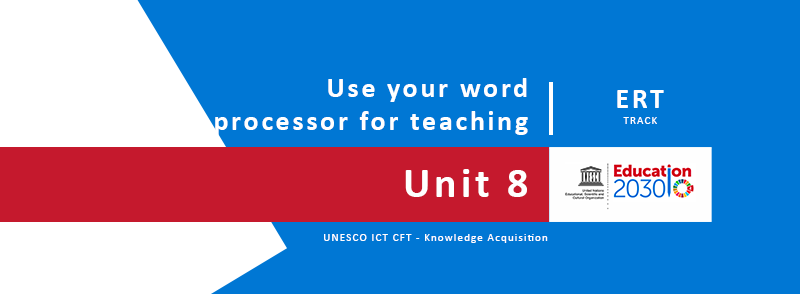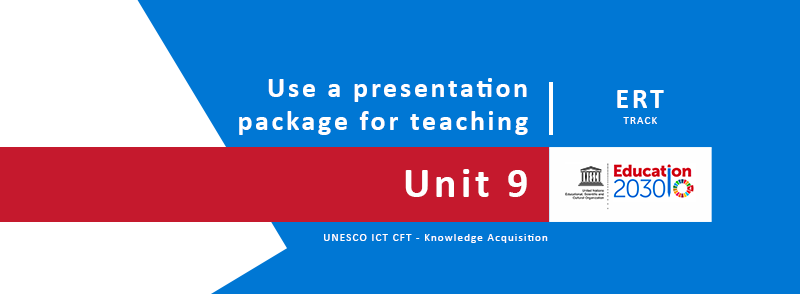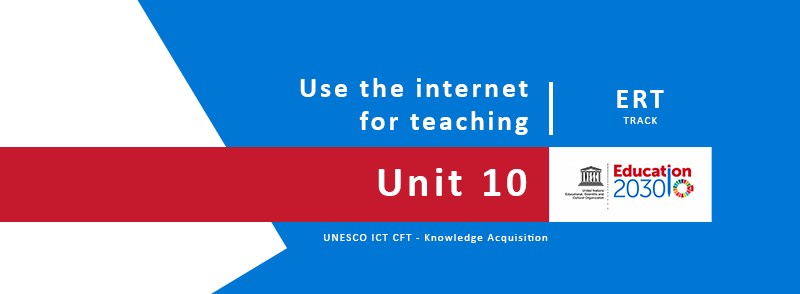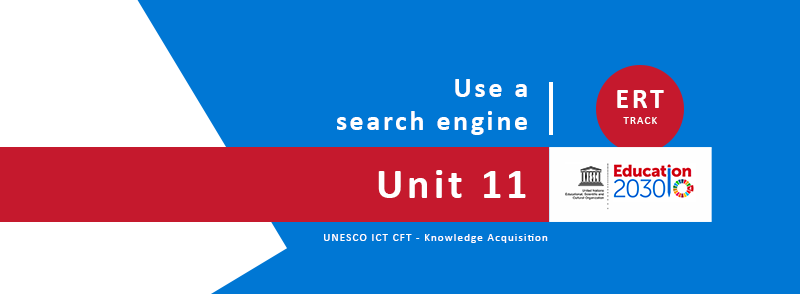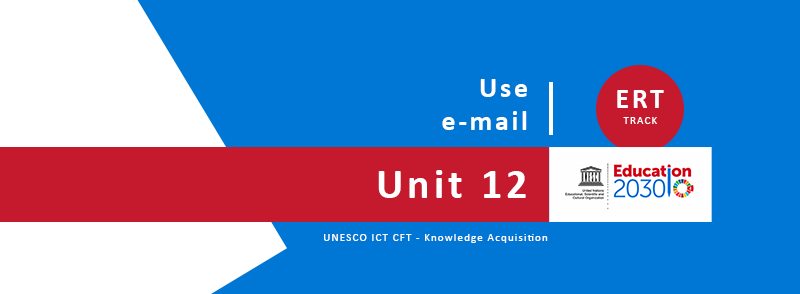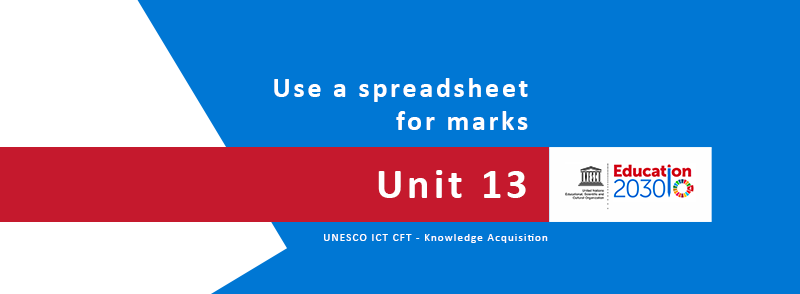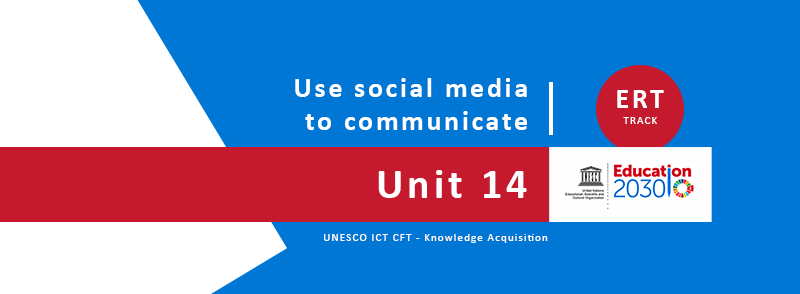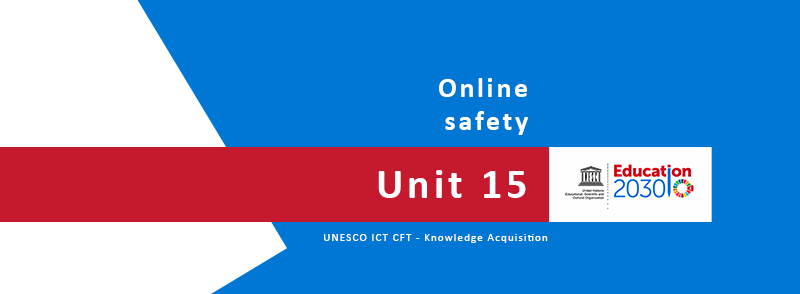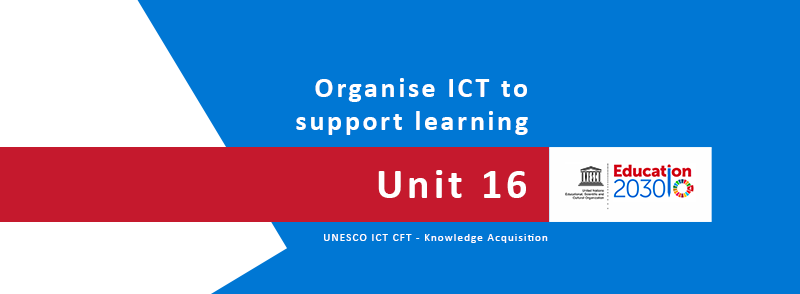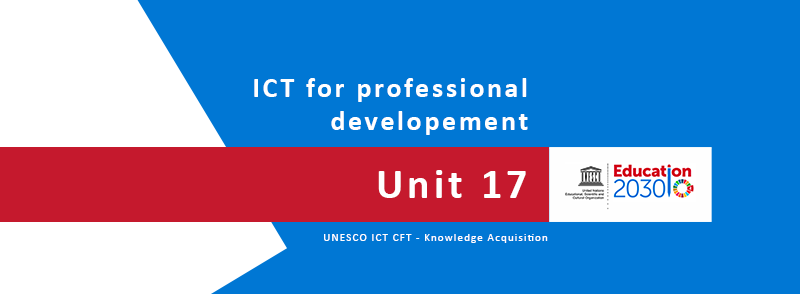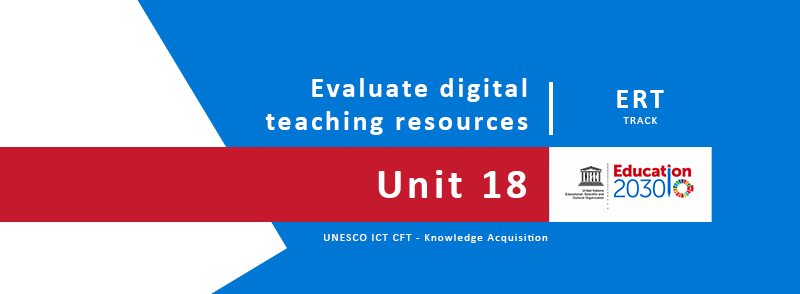UNESCO ICT CFT: These units of study are directly aligned to the UNESCO ICT Competency Framework for Teachers (CFT). The units are an amalgam of the very best of the national ICT Essentials courses developed over the last ten years
in countries as diverse as Kenya, Rwanda, Philippines, Oman, South Africa, Guyana, Egypt, Tunisia, Mozambique and Zimbabwe. This generic version of the ICT Essentials course also includes new materials volunteered recently by the Global Education Coalition (GEC).
This initial offering of 18 units, aligns with educator competencies at the first level of the UNESCO ICT CFT: Knowledge Acquisition.
Emergency Remote Teaching: Since the 2020 pandemic many teachers are under pressure from their school management and/or the local education authority to start teaching remotely! If your not sure
how to teach remotely we would encourage enrolling in this course's Emergency Remote Teaching (ERT) learning path or track. The ICT Essentials ERT track will provide newbies with some basic ICT skills, introduce you to some easy to learn
digital tools and help you coordinate student activities remotely. Look for the ERT track in the top right hand corner of the screen to see the those units of study ideal to teachers new to ICT in education:
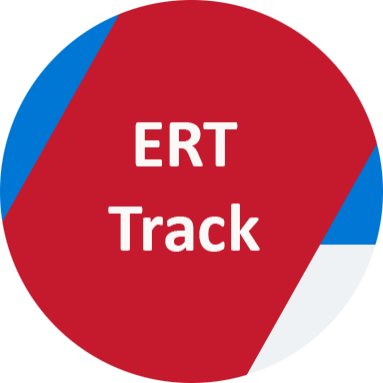
ERT Track on ICT Essentials for Teachers
Unit 02 - ICT to support teaching and learning
Unit 03 - Safe and responsible use of ICT in school
Unit 06 - Using ICT to support assessment
Unit 07 - Basic ICT skills: Getting to know your digital device
Unit 08 - Basic ICT Skills: Use a word processor for teaching
Unit
09 - Basic ICT skills: Use a presentation package for teaching
Unit 10 - Basic ICT Skills: Use the Internet for teaching
Unit
12 - Basic ICT skills: Use a search engine to identify curriculum resources
Unit 13 - Basic ICT skills: Use e-mail to support teaching
Unit 15 - Basic ICT skills: Use social media to support teaching
Unit 18 - Evaluate digital teaching resources.
Moodle Backup files: The generic ICT Essentials course units are available for upload to any Moodle LMS platform and also as PDF printouts. The course could be used for self-study as well as instructor-facilitated learning.
Openly licensed: All units have a Creative Commons Attribution-ShareAlike licence (CC BY-SA). Its open license ensures easy adaptation and mutualisation for new national stakeholders interested in its adoption and/or contextualization of the units.

